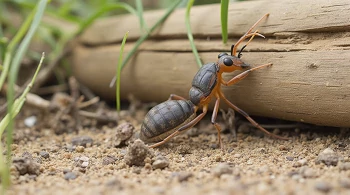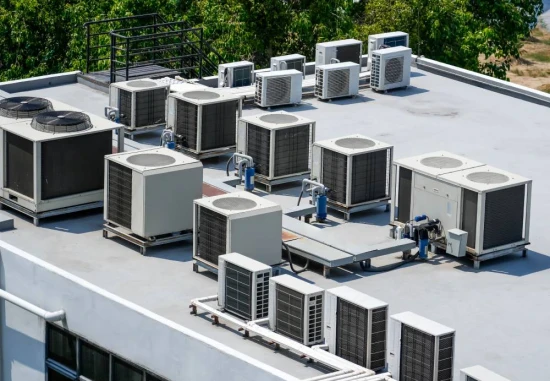Let's be honest - nobody wakes up excited about calling pest control. But when you've got unwanted critters making themselves at home, you need to know what you're getting into financially. I've been dealing with pest issues for years (thanks, Florida living!), and I've learned that pest control costs can be all over the map.
The short answer? You're looking at anywhere from $150 to $400 for a one-time visit, or about $40-70 monthly for regular service. But here's the thing - that range is huge, and there's a good reason why.
What You'll Actually Pay for Pest Control
Single Visits (When You Just Need One Treatment)
Most folks pay between $150-400 for a one-time pest control visit. I know, that's a pretty wide range. A basic ant problem might only set you back $150-200, but if you're dealing with something nasty like termites, you could be looking at $400-600 just for the initial treatment.
Here's what I've seen: my neighbor paid $180 to get rid of some ants last spring, while I ended up paying $320 for a wasp nest removal that required special equipment. Same company, totally different prices.
Monthly Plans (The "Set It and Forget It" Option)
If you want regular protection, monthly services typically run $40-70. I personally think this is the sweet spot for most homeowners. You get consistent coverage, and honestly, it's nice not having to think about pests until the technician shows up.
My current monthly plan costs $55, and it's been worth every penny. No more surprise spider invasions or ant parades across my kitchen counter.
Quarterly Service (The Middle Ground)
Quarterly treatments usually cost $100-200 per visit. This works well if you don't have major pest pressure but want some regular protection. It's like getting a pest control "check-up" every few months.
Why Pest Control Costs Vary So Much
Your House Size Matters (Obviously)
Bigger house = bigger bill. It's pretty straightforward math. My 1,200 sq ft place costs about $150 for quarterly service, but my friend with a 3,000 sq ft home pays around $250 for the same treatment. Makes sense when you think about it - more space means more product and more time.
Multi-story homes cost extra too. Those stairs aren't going to climb themselves, and basements or crawl spaces add to the complexity.
Different Bugs, Different Prices
Not all pests are created equal, and neither are their price tags:
Your Everyday Nuisances: Ants, roaches, spiders - these guys are pretty standard. You're looking at $150-300 for initial treatment, then $40-60 monthly to keep them away.
The Expensive Problems: Termites and bed bugs are in a league of their own. Termite treatment can run $1,200-3,000 for your whole house (yep, you read that right). Bed bugs? Anywhere from $500-1,500, and trust me, you don't want to cheap out on this one.
Seasonal Troublemakers: Wasps, hornets, and their angry cousins usually cost $200-400 to evict. Worth every penny when you can actually use your backyard again.
How Bad Is Your Situation?
Caught a few ants early? Lucky you - probably a $150 fix. Let them set up shop and invite their extended family? Now you're looking at $300-500 to show them the door permanently.
I learned this the hard way. Ignored some "just a few" ants for a month, and suddenly I had what looked like an ant highway running through my kitchen. Don't be like me.
Geographic Location
Pest control costs vary by region due to local pest pressures, labor costs, and market competition. Urban areas with higher living costs typically see higher pest control prices, while rural areas might have fewer service options but potentially lower rates.
Treatment Method and Materials
Eco-friendly and organic pest control options often cost 10-20% more than traditional chemical treatments. Integrated Pest Management (IPM) approaches, which combine multiple strategies, may have higher upfront costs but provide longer-lasting results.
What Should Be Included in Pest Control Service
Initial Inspection and Assessment
Professional pest control should always begin with a thorough inspection. Companies that quote prices without inspecting your property first should raise red flags. Quality services include identification of pest entry points, moisture issues, and conducive conditions.
Comprehensive Treatment Plan
Your pest control service should provide a detailed treatment plan explaining what pests are being targeted, which products will be used, and the expected timeline for results. This documentation helps justify the cost and sets proper expectations.
Follow-up Services
Most reputable pest control companies include follow-up visits in their pricing, especially for initial treatments. If pests return within the warranty period, additional treatments should be provided at no extra charge.
Preventive Recommendations
Quality pest control goes beyond just killing existing pests. Your service should include recommendations for preventing future infestations, such as sealing entry points, eliminating moisture sources, and modifying landscaping that attracts pests.
When Pest Control Costs More Than Expected
Emergency Services
After-hours or emergency pest control services typically cost 1.5 to 2 times the standard rate. Wasps in the walls or bed bugs discovered before guests arrive often fall into this premium pricing category.
Structural Modifications
Some pest problems require minor construction work, such as sealing large gaps or installing screens. These modifications add to the base pest control cost but are often necessary for permanent solutions.
Multiple Pest Issues
Properties dealing with several different pest types simultaneously require more comprehensive treatment plans, increasing overall costs. However, addressing all issues together is usually more cost-effective than separate treatments.
How to Get the Best Value
Get Multiple Quotes
Obtain quotes from at least three licensed pest control companies. Be wary of prices that seem too good to be true, as they often indicate corner-cutting or additional fees later.
Ask About Package Deals
Many companies offer discounts for annual contracts or bundled services. Combining pest control with lawn care or other services can reduce overall costs.
Understand the Warranty
Quality pest control companies stand behind their work with warranties or guarantees. Services with longer warranties might cost slightly more upfront but provide better long-term value.
Consider Prevention
Investing in regular preventive pest control is almost always more cost-effective than waiting for infestations to develop. Monthly or quarterly services prevent expensive emergency treatments.
Red Flags: When Pest Control Might Be Overpriced
Door-to-Door Sales
Be cautious of companies that knock on your door claiming to offer pest control deals. Legitimate companies rarely use aggressive door-to-door sales tactics.
Unusually High Quotes
If one quote is significantly higher than others without clear justification, ask for detailed explanations. Sometimes higher prices reflect superior service, but they should be able to explain the difference.
Pressure for Immediate Payment
Reputable pest control companies don't require full payment upfront for ongoing services. Be suspicious of companies demanding large advance payments.
No Written Estimates
Always insist on written estimates that detail exactly what services are included. Verbal quotes often lead to misunderstandings and additional charges.
Maximizing Your Pest Control Investment
Maintain Good Communication
Keep your pest control technician informed about any new pest activity between visits. This information helps them adjust treatments and identify emerging problems early.
Follow Preparation Instructions
When companies provide preparation instructions before treatment, following them ensures maximum effectiveness and better value for your money.
Address Underlying Issues
Fix moisture problems, seal entry points, and maintain good sanitation. These steps make pest control treatments more effective and longer-lasting.
Conclusion
Understanding how much pest control should cost helps you make informed decisions and avoid overpaying for services. While prices vary based on numerous factors, knowing the typical ranges and what should be included in quality service enables you to evaluate quotes effectively.
Remember that the cheapest option isn't always the best value. Focus on finding a licensed, reputable company that provides comprehensive service, clear communication, and stands behind their work with solid warranties. Investing in quality pest control protects your home and provides peace of mind that's worth the cost.
Whether you need a one-time treatment or ongoing pest management, understanding these pricing factors ensures you get fair value for your pest control investment. Take time to research companies, compare quotes, and choose a service provider that offers the right balance of effectiveness, reliability, and value for your specific situation.






